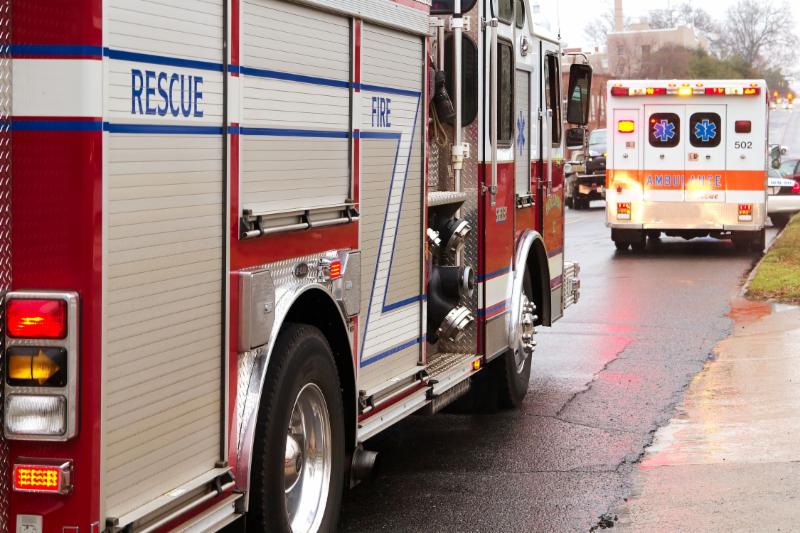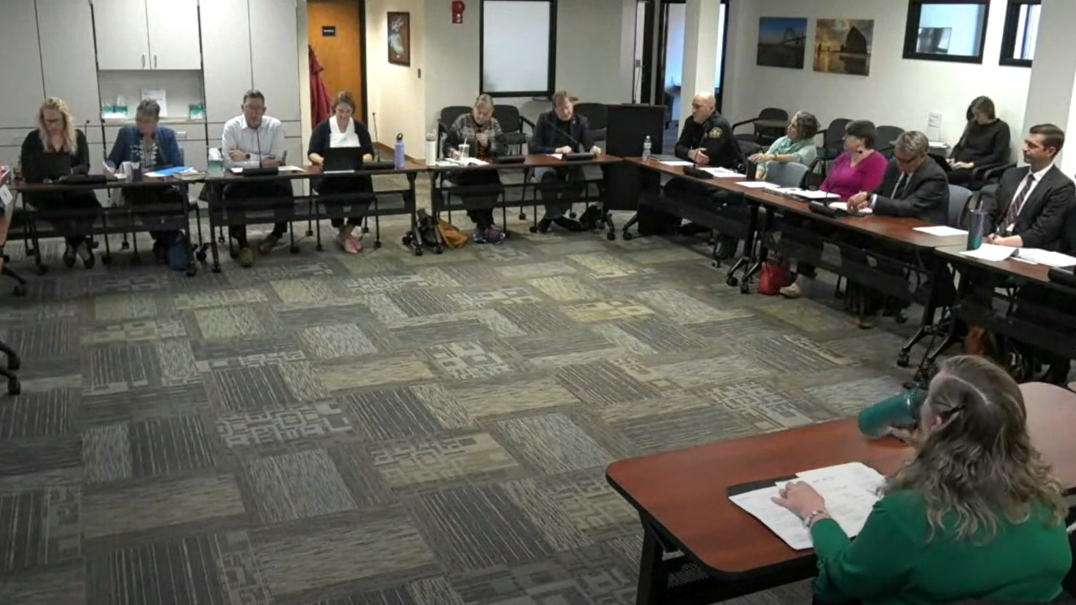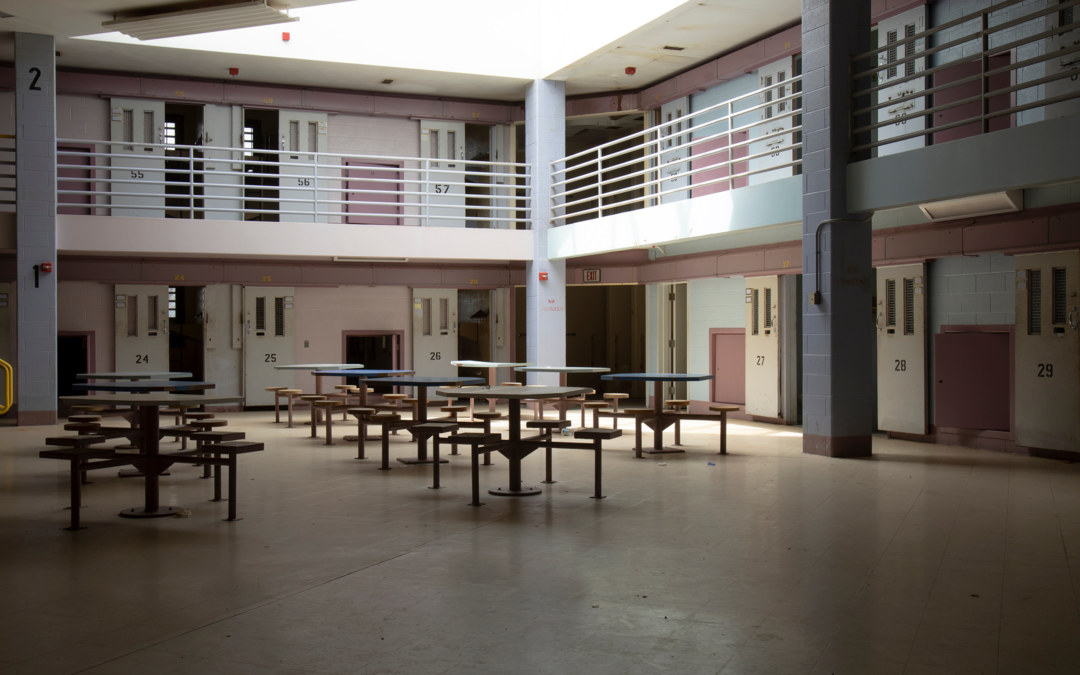
Sep 30, 2024 | Health & Human Services, Public Safety & Veterans
The Deflection Engagement and Coordination ECHO Program is offering free webinars on deflection. View more information on the OHSU October Bulletin and Deflection Brochure.
Deflection Level Setting
Oct. 8, 2024 from 12-2 p.m.
Learn from national expert, Jac Charlier on deflection. This webinar is ideal for anyone working in deflection, law enforcement or social services. Jac Charlier is the Executive Director of TASC’s Center for Health and Justice (CHJ) and Executive Director and co-founder of the Police, Treatment, and Community Collaborative (PTACC). He is a co-founder of the international deflection movement and works to grow and develop the global field of deflection from research to legislation to policy to practice.
Register Here
Deflection Engagement and Coordination ECHO
Oct. 16, 2024 from 12-1 p.m.
This 14 session ECHO meets every 1st and 3rd Wednesday. Connect with others working in deflection, learn from experts and brainstorm difficult cases with your peers in other counties. The purpose of the Deflection Engagement and Coordination ECHO is to develop the deflection skillset and function as a networking space for the multidisciplinary deflection workforce in Oregon. Participants will learn from the ECHO Team and from their peers operating deflection programs across 28 Oregon counties. County teams in planning and in operational phase of new deflection programs are encouraged to register.
Register Here
Motivational Interviewing
Nov. 1, 2024 from 10-11 a.m.
In this informational and practical training, we will explore how to use motivational interviewing to facilitate positive change. In this series of informational and practical trainings, we will explore how to use motivational interviewing to facilitate positive change. The initial training is applicable to all roles; aspects of the method can be applied in even the briefest of client interactions.
Register Here
Contributed by: Jessica Pratt | Legislative Affairs Manager, Health and Human Services

Jul 25, 2024 | Public Safety & Veterans
Submitted by the Oregon Health Authority (OHA)
The OHA Emergency Medical Services and Trauma Systems Program is now accepting applications for the new Emergency Medical Services Advisory Board (EMSAB) and Emergency Medical Services for Children Advisory Committee (EMSCAC), in alignment with the 2024 EMS Modernization legislation.
The EMSAB is a new body created by EMS Modernization. It will receive recommendations from advisory committees and subcommittees about provision of emergency medical care throughout Oregon, approve regional plans, and work to address ongoing challenges in the field of emergency medicine. The EMSCAC enters a new iteration following EMS Modernization.
EMSAB applications close Aug. 16, and EMSCAC applications are due by Oct. 31.
Additional applications will open February 2025 for the other advisory committees and subcommittees created by EMS Modernization, and for additional positions on the EMSCAC that were not included in the bill.
For more information, visit the OHA EMS and Trauma Systems website, or email EMS.TRAUMA@odhsoha.oregon.gov.

Mar 27, 2024 | AOC Advocacy, AOC News, Health & Human Services, Public Safety & Veterans
The short, fast-paced 2024 legislative session ended with real wins for the Association of Oregon Counties (AOC) public safety portfolio. AOC’s Public Safety Steering Committee identified two priorities in advance of the session — increasing state investment in community corrections for the remainder of the 23-25 biennium, and elevating the county voice and role in Ballot Measure 110 reform conversations. Both of these priorities were achieved due to the ongoing advocacy of AOC members.
Community corrections funding
This past fall AOC heard from counties across the state that funding for community corrections was at a critical breaking point. In response, the AOC Public Safety Steering Committee prioritized increased state investments in community corrections funding for the remainder of the 23-25 biennium in the 2024 short session.
Thanks to advocacy from AOC members and community corrections directors, the legislature recognized this critical need and appropriated the requested amount. HB 5204 includes $16 million allocated to the Oregon Department of Corrections for grant-in-aid funding to counties specific to community corrections funding. AOC and other partners have committed to coming to the table over the interim to collaborate on a new funding formula for community corrections, ensuring that future funding formulas are better reflective of current populations coming through community corrections.
Addressing the fentanyl crisis
In addition to community corrections needs, the AOC Public Safety Steering Committee also prioritized Measure 110 reforms in the 2024 legislative session. Specifically, our members asked AOC to elevate the county voice in Measure 110 reform, supporting policy modifications that prioritize engagement in substance abuse treatment, provide sufficient funding for county services, and strengthen tools the criminal justice system can use to fight illegal drug use and sales.
The legislature passed two bills related to Measure 110 reform — House Bill 4002: Measure 110 Reform Policy Package, and House Bill 5204: Measure 110 Reform Funding Package.
AOC staff worked closely throughout session with public safety partners and legislative leadership consistently communicating how potential Measure 110-related policy changes would affect counties. AOC staff advocated for appropriate funds and capacity building at counties, while also pushing for maintaining the integrity of counties’ local mental health authority. AOC President Danielle Bethell testified on behalf of AOC in front of the Joint Committee on Addiction and Community Safety Response during a public hearing on HB 4002 and relayed AOC’s position, which was also submitted as written testimony. AOC is grateful to our members, partners, and the legislature for passing meaningful legislation and centering counties in the policy development process and policy implementation. View a comparison of AOC adopted principles with the final bill outcomes here.
HB 5204 allocates more than $110 million to counties and county-related programs for infrastructure projects, standing up deflection programs, supporting specialty courts, funding community corrections, and more. HB 4002 creates a new PCS-U misdemeanor for possession of a controlled substance, and offers pathways to expungement, dismissal, or no charges filed. Deflection programs will be created and coordinated at the county level, with public safety and behavioral health partners working together. Access a visual flowchart of how deflection works here. Twenty-three counties have indicated interest in setting up a deflection program. AOC will continue to keep our members informed on the progress of HB 5204 funding and HB 4002 deflection program implementation through regular meetings and email communications.
Contributed by: Legislative Affairs Manager Jen Lewis-Goff

Dec 19, 2023 | AOC Advocacy, Health & Human Services, Legislative Committee, Public Safety & Veterans
The short 35-day 2024 legislative session is expected to focus primarily on housing and Measure 110. AOC recognizes that some proposals under consideration related to Measure 110 reforms will have direct impacts on counties, and consequently our members are deeply invested in the potential outcomes. AOC is committed to elevating the county voice in these discussions and ensuring that AOC members are able to review and weigh in on concepts with direct county impacts.
In preparation for those conversations, AOC steering committees and the Legislative Committee took action at their October meetings.
AOC’s Public Safety steering committee adopted a 2024 legislative priority related to Measure 110:
- Elevate the county voice in Measure 110 reform, supporting policy modifications that prioritize engagement in substance abuse treatment, provide sufficient funding for county services, and strengthen tools the criminal justice system can use to fight illegal drug use and sales.
AOC’s Health and Human Services steering committee also adopted this principle:
- Support Measure 110 reforms to create a sustainable complete continuum of substance use disorder prevention, treatment and recovery capacity that matches community need and is subject to the statutory planning and oversight of local mental health authorities.
Joint AOC Health and Human Services and Public Safety Steering Committee Meetings
AOC leadership recognizes the importance of the Measure 110 reform conversations to our members, and in collaboratively evaluating both the health and public safety policy considerations. Accordingly, during the 2024 legislative session, AOC’s Health and Human Services and Public Safety steering committees will be meeting jointly to determine AOC positions on relevant 2024 legislative bills. The four co-chairs of these two committees will also meet together routinely to collaborate and direct staff.
On Oct. 27, AOC held a joint Health and Human Services and Public Safety steering committee meeting focused on Ballot Measure 110. The meeting, with over 90 individuals participating in person and virtually, focused on current data, local government perspectives and potential policy changes in the coming year. A variety of partner groups and advocates joined the meeting to share their experiences and thoughts on the future of Measure 110. A full recording of the meeting is linked here.
In the Capitol
Oregon’s legislative leadership created a new joint committee to consider Measure 110-related changes for the 2024 legislative session. The Joint Interim Committee on Addiction and Community Safety Response is co-chaired by Senator Kate Lieber and Representative Jason Kropf. The committee has now met three times. At its October meeting, the committee focused on behavioral health and addiction services. At its November meeting, the committee heard from the law enforcement community on potential policies. A coalition of public safety stakeholders shared with the committee an 11-point proposal.
At its December meeting, the joint committee heard from experts on: evidence-based substance use disorder treatment; medication assisted treatment; and deflection, stabilization and alternative intervention programs. At this 4-hour long meeting, the committee also heard public testimony for the first time. Invited to provide testimony, AOC staff shared with the committee AOC’s adopted priorities and principles on Measure 110 reform, encouraging the committee to consider holistic changes with appropriate systematic funding for county services. AOC further advocated for counties to continue to be invited to the table and included in reform discussions to ensure counties can partner successfully with the state on any future changes. You can watch a full recording of the hearing here.
We expect the next meeting of the joint committee to take place during January Legislative Days.
AOC is actively engaged with legislative leaders and local system partners to discuss the ramifications of potential policy decisions, ensuring that any potential policy change is examined for county impact.
Want to join the conversation?
AOC members interested in shaping the organization’s positions on 2024 legislation affecting Oregon counties are encouraged to participate in January and February steering committees. The schedule can be found on our website.
Contributed by: Jen Lewis-Goff and Jessica Pratt | legislative affairs managers

Oct 24, 2023 | AOC Advocacy, Public Safety & Veterans
Many Oregon counties are currently facing a funding shortage for community corrections, reflective of state budgetary allocations not meeting current needs. At its October meeting, the Association of Oregon Counties (AOC) Public Safety Steering Committee adopted a 2024 legislative priority advocating for additional one-time funds ($16 million) for community corrections for the remainder of the biennium. These funds are critical to assist counties in maintaining current service levels until a larger conversation and effort can be taken to review and adjust the overall community corrections funding formula.
In 1995, the Oregon State Legislature passed Senate Bill 1145, establishing community corrections as a state-county partnership to provide supervision and services to certain offender populations. Through the partnership with the state, counties are reimbursed for individuals in their custody sentenced to 12 or fewer months of incarceration, and individuals on probation, parole, or post-prison supervision. The reimbursement rate to counties is based on a complex formula that considers among other factors: populations, case load forecasting, and risk assessments. A cost study is conducted every six years to inform the reimbursement rate. The latest cost study was conducted in 2018.
Oregon legislators received briefings on this issue in the House and Senate Judiciary Committees, as well as in the Joint Ways and Means Public Safety Subcommittee during September legislative days. The Oregon Association of Community Corrections Directors (OACCD) educated lawmakers on the shifting populations being served by community corrections due to a variety of factors such as the COVID-19 pandemic, a public defender shortage, and Ballot Measure 110. The presentation also shared concerns that the funding formula was based largely on a point-in-time cost study, without considering inflation or population risk level costs above average. OACCD discussed funding challenges over the last few budget cycles based on this formula. Washington and Lane counties presented firsthand accounts on how the capacity required to serve the community corrections population continues to become increasingly more complex.
Rep. Kropf, House Judiciary Committee Chair, gave legislative blessings for a Department of Corrections facilitated workgroup to begin stakeholder discussions on the current community corrections funding formula with an eye toward the 2025 legislative budget. AOC was allocated three seats on this committee: one staff member and two commissioners. President DeGroot appointed AOC Public Safety Steering Committee Co-chairs, Commissioner Dave Henslee (Klamath) and Commissioner Jeremy Gordon (Polk) to represent AOC on this workgroup. The county perspective will also be shared via workgroup seats allocated to the OACCD.
“Community corrections is a key public safety tool in our communities,” says Commissioner Gordon. “We urge the Oregon Legislature to allocate additional one-time funds to county community corrections for the remainder of this biennium.”
“Looking ahead to future biennia, our steering committee looks forward to thoughtfully collaborating with our community corrections directors, the Oregon Department of Corrections, Oregon legislators, and other partners, as we dive into this complicated formula discussion,” adds Commissioner Henslee.
Contributed by: Jen Lewis-Goff | AOC Legislative Affairs Manager

Jan 26, 2023 | Public Safety & Veterans
When a person’s behavior causes concern for their welfare, they can be forced to enter a treatment facility in a process called civil commitment–even if they don’t pose an immediate danger to themselves or others. Civil commitment is a thorny issue because, on the one hand, communities have a responsibility of care; but on the other hand, communities must respect individuals’ rights and freedoms. Furthermore, individuals left to experience acute mental health crises without support may pose a danger to themselves or others, and compelling treatment may be a better option than leaving them unsupported.
Historically, there were many cases where the civil commitment process was abused, sometimes causing egregious harm. Those abuses led to reforms making the process much more difficult to pursue. Civil commitment is rarely used in Oregon, partly because of difficulty finding placement for those who may be in need. It has also been argued that the legal standard for civil commitment in Oregon may be higher than necessary.
Oregon’s outgoing chief justice, Martha Walters, established the Commitment to Change Workgroup last year, to grapple with these difficult questions. The workgroup includes representatives from the criminal justice system like judges, district attorneys, public defenders, and law enforcement. Also represented are legislators, local governments, and healthcare leaders such as the Association of Oregon Community Mental Health Programs, disability rights advocates, mental health and addiction care providers, and state agencies. There is currently an opening on the workgroup for someone to represent counties. Anyone interested in this opportunity should reach out to AOC Legislative Affairs Manager for Public Safety, Michael Burdick, for more details.
Contributed by: Michael Burdick | Legislative Affairs Manager






